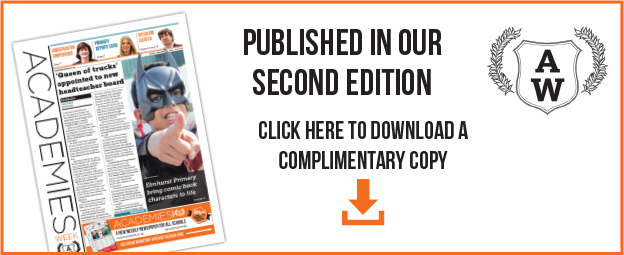Our guest blog reviewer of the week is Harry Fletcher-Wood, a secondary history teacher and head of teacher professional development (@HFletcherWood)
Practice in CPD: from eye rolls to role play : by MissQuinnMaths
Dixons Trinity Academy, a Bradford free school in its third year, has garnered high praise from everyone I know who has visited – including Ofsted, who rated the school “outstanding” in all four inspection categories. In this fascinating post, Dani Quinn, head of maths, explains how an unusual form of continuing professional development underpins their success.
She explores the effects of creating a “culture of practice”: staff role-play their responses towards students in order
to refine them.
In the blog she highlights the changes this can lead to in teachers’ behaviour and skill, and notes that “actually talking about values, and how they guide our actions, is something that many adults can feel embarrassed about,” but that “practising these ‘pep talks’ together helps us to talk about them in a natural and genuine way”. She also reflects on the way practice has helped her to find the leadership style that she wants. The post is a must for anyone interested in teacher improvement.
To do things better, stop doing so much : by HBR IdeaCast
Going liberal with the interpretation of “blog”, this week, I was impressed by a thoughtful Harvard Business Review podcast, by Greg McKeown, in which he argues that success lies in being able to “discern what’s essential” and “eliminate what’s not essential”. He describes most modern workers as “tricked by the trivial” and the fast pace of modern life. He cites rushing from his daughter’s maternity bed to an insignificant client meeting to suggest that: “If you don’t prioritise your life, then someone else will.” McKeown claims that this bubble will soon burst, and offers suggestions to help listeners adapt.
How research-informed practice stood up to the pseudo-science of inspection: defending an ungraded approach to the evaluation of teachers : @drmattoleary
The University of Wolverhampton’s teacher education department refuses to judge its trainees using Ofsted-style numerical rating. Dr Matt O’Leary’s robust defence of this practice outlines his concerns about the over-simplification of grading, compared with the nuanced accuracy and developmental effect that qualitative evaluations of trainees provide. He situates his critique of the “ongoing fixation with attempting to measure teacher performance” in the context of the “wider neoliberal obsession of trying to quantify and measure all forms of human activity, epitomised in the oft-quoted saying that ‘you can’t manage what you can’t measure’. Teachers and leaders who have been frustrated by the need to fit their data into a narrow range of square holes may find ammunition or encouragement in O’Leary’s post.
On beyond pre-school: alleviating poverty over a lifespan : @RobertSlavin
Many intervention programmes have powerful effects initially, but see these results diminish or disappear with time. Robert Slavin, director of Johns Hopkins Center for Research & Reform in Education, Baltimore, Maryland, offers the example of the “HIPPY” parenting programme, which can reduce a “22 per cent ‘success gap’ at school entry by 14 percentage points. Yet this falls to five points by middle childhood, three points by adolescence, and two points by middle age.” However, “this should not be a cause for despair,” he argues,
“but rather for realism about how to help children succeed all the way through to adulthood.”
This blog (by Slavin) summarises a paper by Isabel Sawhill and Quentin Karpilow that offered a theoretical combination of four different evidence-based interventions.
By following this menu of actions, “the final result, by their estimates, was an elimination of the poverty gap in early and middle childhood”.












